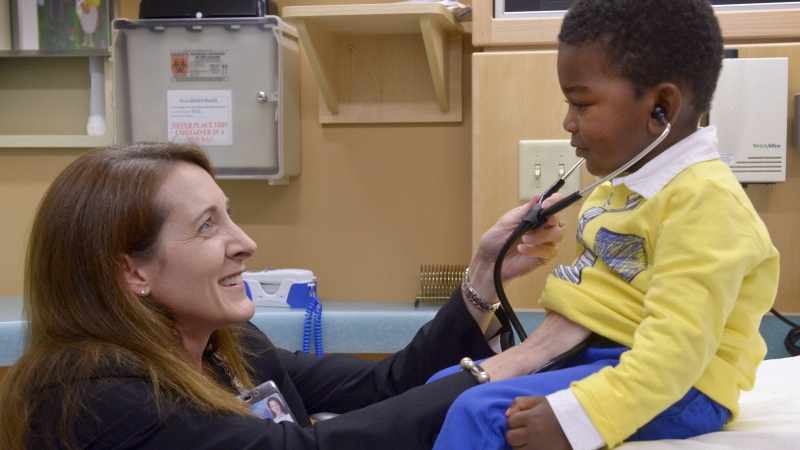-
What the New Screening Guidelines for Children’s Checkups Mean
The American Academy of Pediatrics (AAP) released its updated list of recommended health care screenings for children, that include checking for depression, high cholesterol and HIV. Mayo Clinic Children's Center pediatrician Dr. Angela Mattke says the revised recommendations are a "firm affirmative to pediatricians that doing these screenings or testing will be beneficial to the child’s health."
What are well-child visits?
Well-child visits are another name for routine checkups or physicals. "Much of the AAP Preventive Health Care Screening and Assessment Schedule for Children's Checkups includes screening as opposed to skipping straight to testing. Screening usually involves asking questions pertaining to the subject or using a validated screening tool such as the CRAFFT (Car, Relax, Forget, Friends, Trouble) for drug and alcohol use or PHQ-9 Modified (depression screening tool) to make sure questions are asked in such a way that have been shown to pick up children and teens at risk for whatever they are screening for," says Dr. Mattke.
She stresses that screening children is necessary because some children are at risk for these health conditions, the rate of the conditions is increasing in younger age groups, and without screening, they may go undiagnosed and suffer serious health consequences.
Depression screening every year from ages 11 through 21
"Depression screening is so important. Mood disorders and suicide rates increased over the last couple of decades." Dr. Mattke says, "At least 10 percent of my practice is treating children with depression and anxiety. If we don’t ask them about it in a safe manner, they may not disclose."
High cholesterol screening for children between 9 and 11 years
Testing or screening children beginning at age 9 for high blood cholesterol levels may help reduce the national trend of increased childhood obesity. Dr. Mattke says that by addressing high cholesterol in childhood, we can impact their adult risk factors for early coronary artery disease. She adds that teaching children and families about healthy diets and the importance of physical activity is a start.
HIV screening for adolescents between 16 and 18 years
"HIV rates are still increasing in this age group. Catching it early can mean a large difference in their overall health and ability to give it to other people through unprotected sex."
For parents and caregivers
The new recommendations, says Dr. Mattke, should "give confidence to parents and guardians that their pediatricians are trying to give their children the best, evidence-based care. We do these screenings because they can impact the health and well-being of their child in a positive way."
Changes in the Screening Guidelines
- The recommendation for routine vision screening at age 18 has been changed to risk-based assessment, based on evidence showing that fewer new vision problems develop in low-risk young adults.
- To help reduce dental cavities, the top chronic disease affecting young children, a recommendation has been added for fluoride varnish applications from 6 months through 5 years.
- Pediatricians are advised to use the CRAFFT (Car, Relax, Alone, Friends, Trouble) screening questionnaire as a tool to screen adolescents for drug and alcohol use.
- Depression screening has been added, with suggested screenings every year from ages 11 through 21. Suicide is now a leading cause of death among adolescents.
- A screening for dyslipidemia, or high blood cholesterol levels, has been added for patients between 9 and 11 years old. The change reflected concerns about the growing epidemic of obesity in children.
- A risk assessment has been added at 15 and 30 months for hematocrit or hemoglobin screening to help detect anemia, an iron deficiency.
- An HIV screen was added for adolescents between 16 and 18 years to address federal statistics showing that 1 in 4 new HIV infections occurs in youth ages 13 to 24 years old, and that about 60 percent of all youth with HIV do not know they are infected.
- Screen for cervical dysplasia, the presence of precancerous cells on the surface of the cervix, only at 21 years (instead of risk assessment every year from ages 11 through 21).
- A screening for critical congenital heart disease using pulse oximetry has been added and should be performed in the hospital before newborn discharge.
Related Articles








